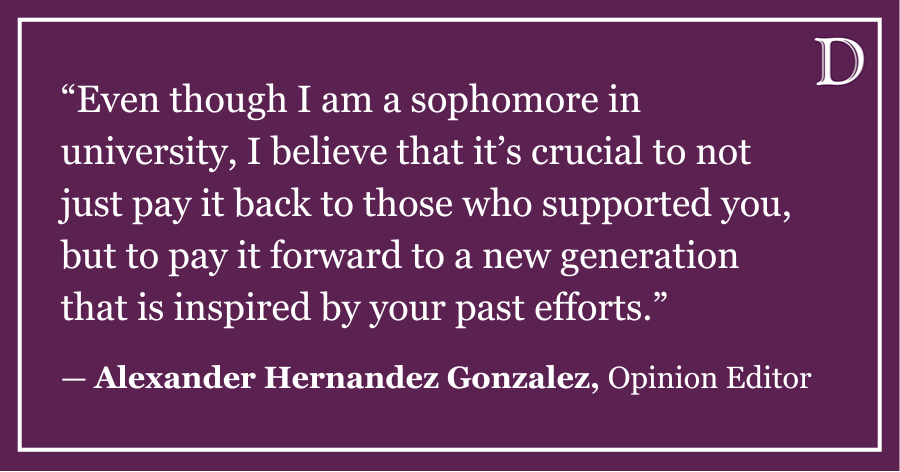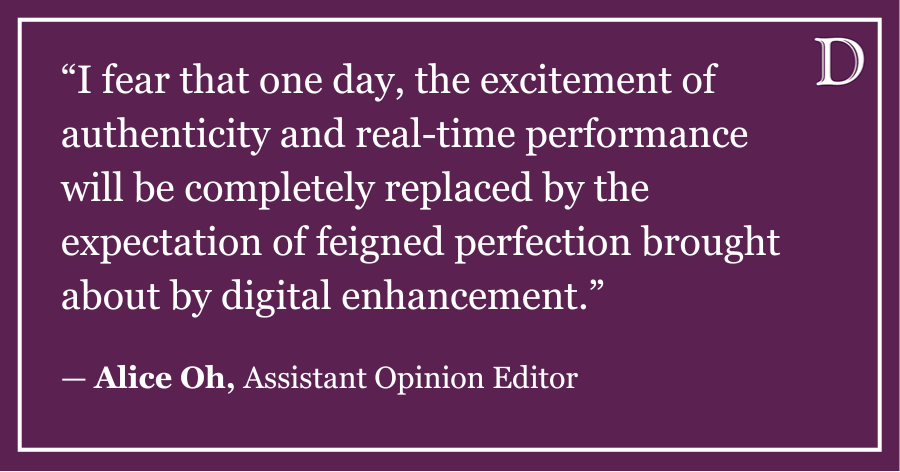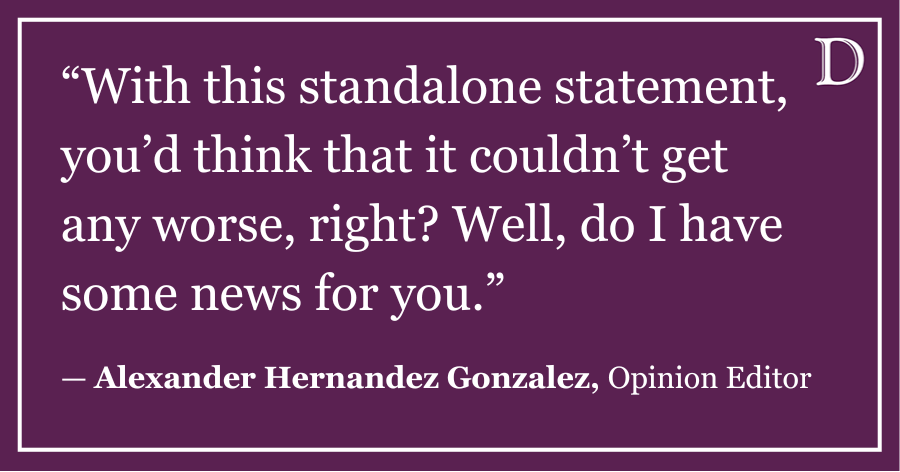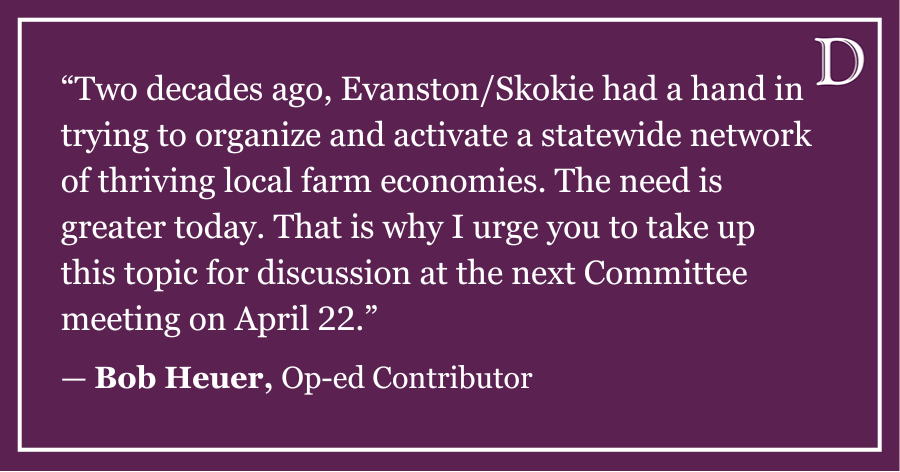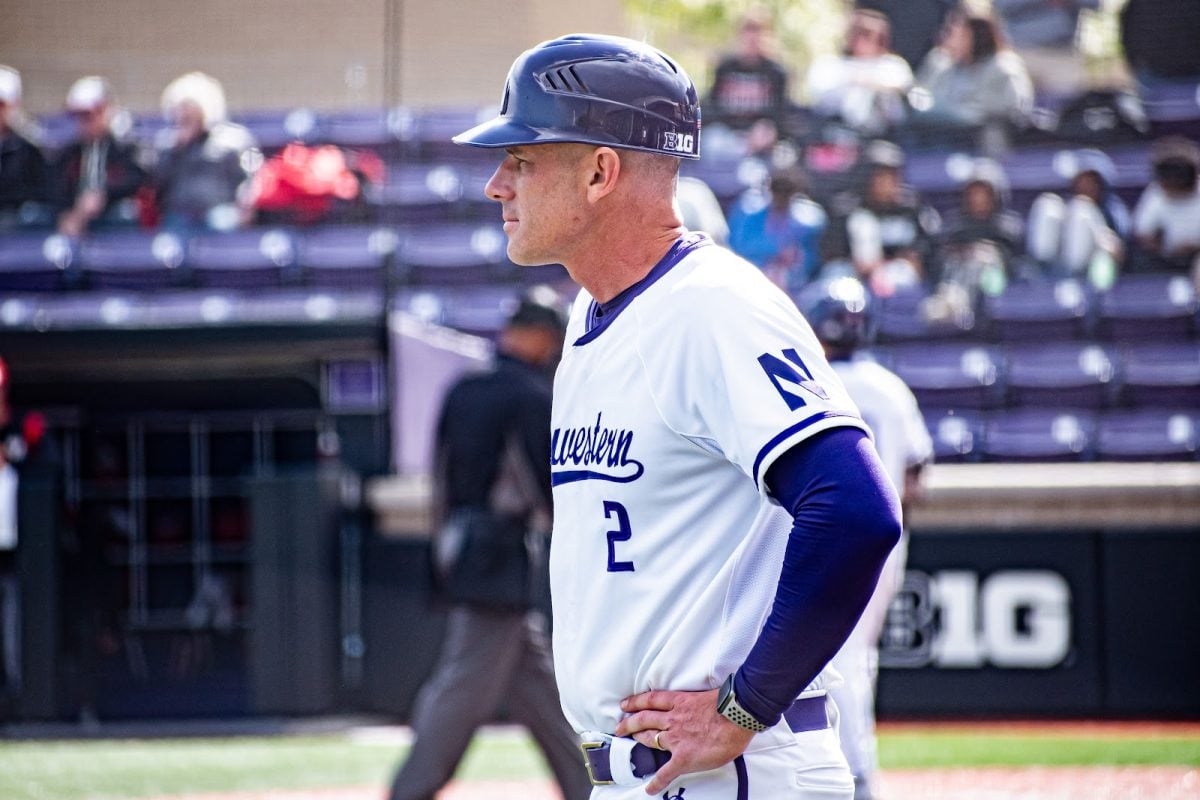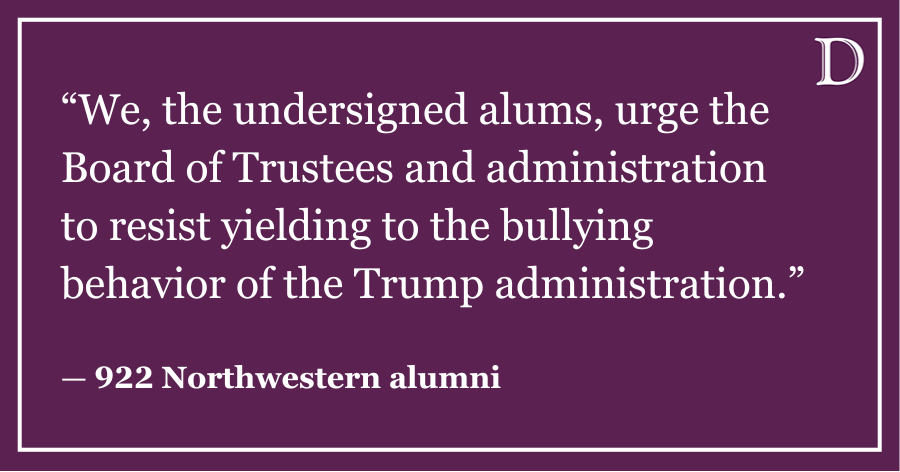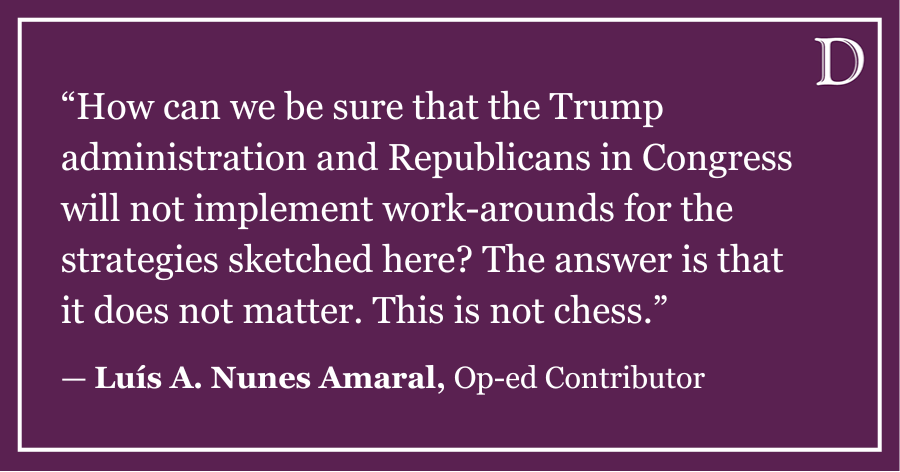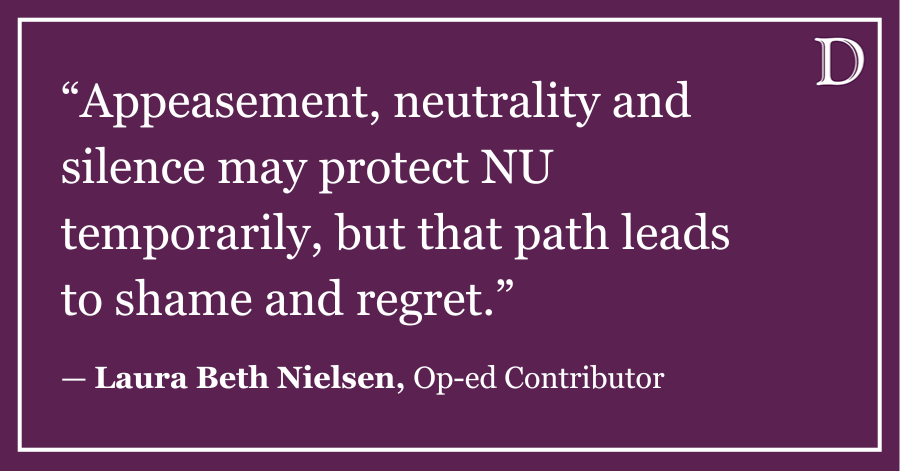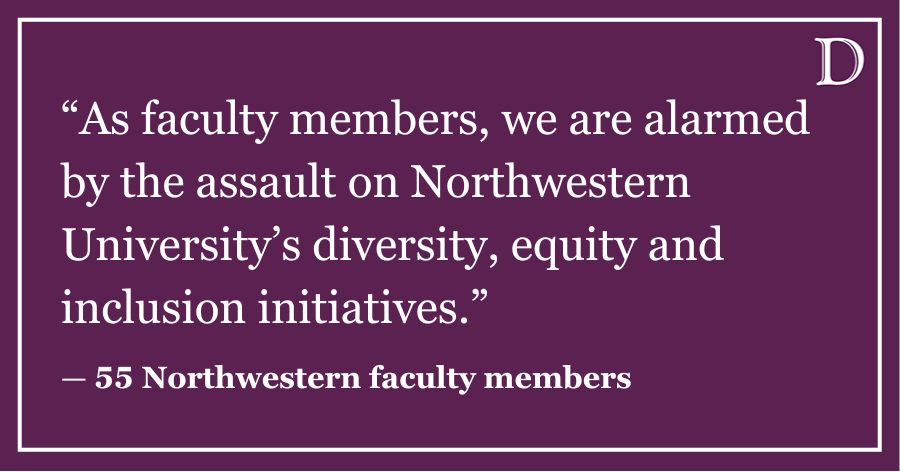Over the weekend, I attended the Eid banquet hosted by Northwestern’s Muslim-cultural Students Association. An Eid meal occurs during the festival of Eid al-Fitr, which celebrates the end of the month of fasting in Islam. This month, the ninth in the Islamic lunar calendar, is known as Ramadan.
According to Islam, Ramadan is when the first verses of the Quran, the holy book of Islam, were revealed to the Prophet Muhammad. During a Ramadan fast, abstinence from food and water takes place from dawn to sunset, when the fast is broken in a meal known as “iftar” in Arabic. The act of fasting for Muslims is one of worship, as well as one of empathy, drawing the individual closer to those suffering.
It is not surprising, then, that at the banquet, while families and friends congregated, there was a note of melancholy in the atmosphere, a collective pensiveness. Last month, CNN published a photograph showing a Palestinian family in northern Gaza breaking their Ramadan fast among the bombed rubble of their home.
In India, where Muslims make up 14.2% of the country’s population, Prime Minister Narendra Modi has become an emblem of the right-wing’s anti-Muslim mentality. Since his initial election in 2014, Modi has pushed Muslims into the category of second-class citizens. Most recently, he passed the Citizenship Amendment Act, a law facilitating the acquisition of citizenship for migrants of Hindu, Parsi, Sikh, Buddhist, Jain and Christian faith — but excluding Muslims.
Now, Modi is gearing up for what is predicted to be a landslide victory in the upcoming general election. This election, taking place between April 19 and June 1, will be the largest in human history, as an estimated 960 million people will give in their slip of choice.
But Modi has not been playing fair. Not only did he recently order an arrest on Arvind Kejriwal, the leader of the Aam Aadmi Party and Modi’s main opposition, but he has also been editing the political narrative for years.
Modi is especially notorious for bullying X (formerly known as Twitter) executives into complying with his censorship requests. Among these was the demand that accounts and tweets promoting Hindu-Muslim unity be blocked.
In October of 2023, X blocked the accounts of Hindus for Human Rights and the Indian American Muslim Council — both of which were advocating for a peaceful and secular future for India that grated against Modi’s desire for an all-Hindu nation.
It is a strange feeling to belong to a country, to have grown up in a country and to have seen its vitality — its secular vibrancy — shrivel under the reign of Narendra Modi and the Bharatiya Janata Party.
India’s right wing has tried, for a very long time, to validate its hatred of Muslim people. Its leaders reason that the Mughal rulers in India were brutal and that India’s Muslim communities must bear punishment on their behalf.
However, Manu Pillai, an Indian historian, highlights that Hindu kings were just as violent as Mughal emperors, and that violence was a feature — albeit an unethical one — of nearly all ancient kingdoms, where ethics were not conceived. But these facts seem to gain no traction in post-truth India, as the government’s penchant for editing citizens’ knowledge begins at the level of adolescence.
In June 2022, India’s National Council of Educational Research and Training removed the reasons for Mohandas Karamchand Gandhi’s assassination from history and political science textbooks for high schoolers. Gandhi was assassinated by Nathuram Vinayak Godse, a Hindu extremist, on January 30, 1948. Godse was affiliated with the Rashtriya Swayamsevak Sangh (RSS), a group that promotes the idea of Hindutva — a nation ruled by a Hindu majority.
At the time, Gandhi was the nation’s fiercest advocate for Hindu-Muslim unity. This is one of a series of deletions made by the organization and uploaded to its website.
These deletions showed the stain of saffronisation, a political neologism that finds its origins in the saffron-orange robes worn by certain Hindu priests and refers to the right-wing policies that censor art and culture. They repeatedly targeted facts on Mughal India, its secularism and Hindu extremism.
Included in the collection were the 2002 Gujarat riots which Narendra Modi allegedly facilitated, an allegation that led him to be banned from the United States until his election to the position of prime minister in 2014.
Frantz Fanon’s “The Wretched of the Earth” offers the view that, by reveling in violence, a post-colonial nation refuses colonialism, rejects its historical subservience and claims its freedom. In this case, a Hindutva nation excludes its innocent Muslim citizens as it wishes to exclude the memory of the British Raj. But, in pursuing its political project of Hindutva, the right also fulfills the vision of India that Britain first set out to achieve — of a divided nation.
Pakistani writer Saadat Hasan Manto once dreamed of an Indian subcontinent where “people will live as people, irrespective of religion.” But Modi’s smiling promises of better days seem different from the dream Manto envisioned. The next generation’s fight for truth will be slowed by their own edited knowledge.
But, I hope that in the coming weeks they will give in their ballots urged by the possible imminence of a nightmare. Of the midnight hour coming and going. Of a day when India could awake, this time, into a ruined, mottled dawn.
Devaki Jayal is an exchange student from University College London. She can be contacted at devaki.jayal.24@u.northwestern.edu. If you would like to respond publicly to this op-ed, send a Letter to the Editor to opinion@dailynorthwestern.com. The views expressed in this piece do not necessarily reflect the views of all staff members of The Daily Northwestern.


